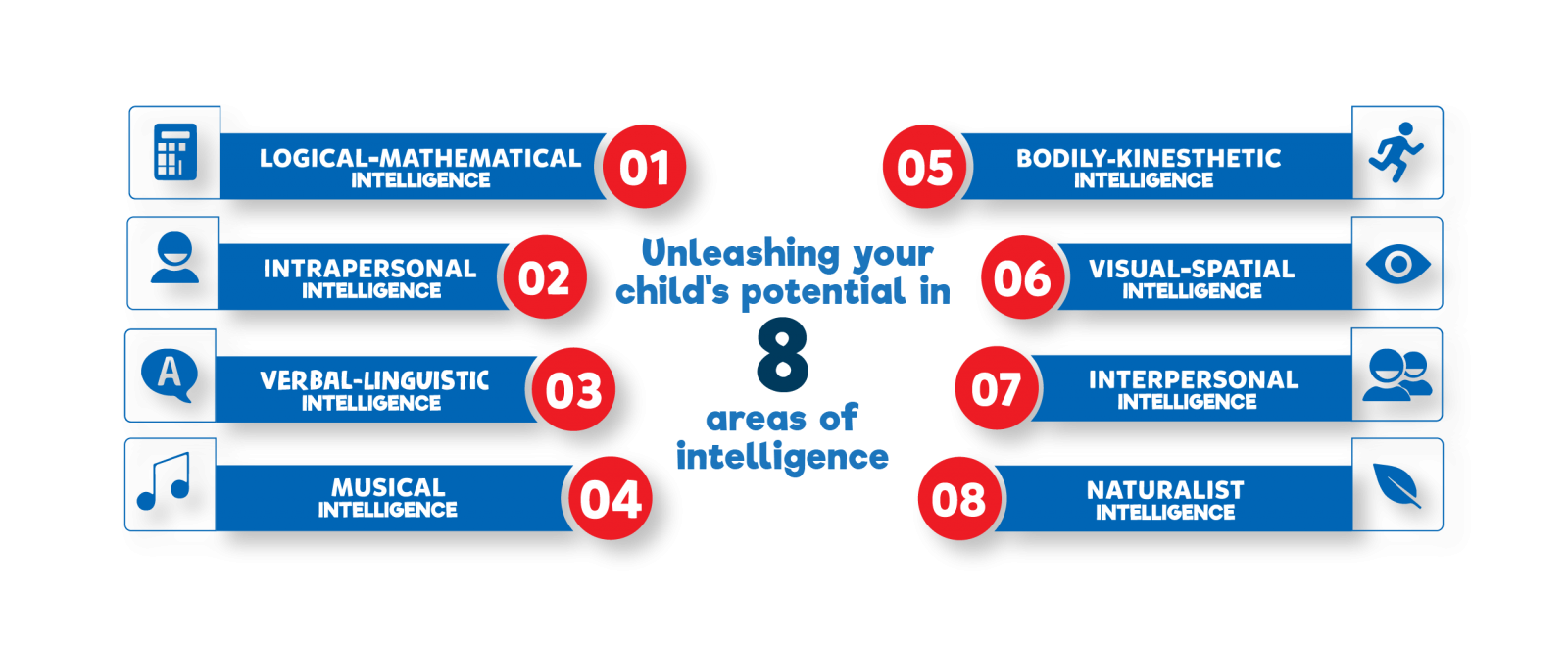The development of fingerprints and the human brain is synchronous, between the 13th and 19th prenatal week. Through clinical trails, the fingerprints and multiple intelligences are absolutely related. Dr. Howard Gardner discovered that multiple intelligences are correlated to specific regions in the neocortex. This enables dermatoglyphics to identify the presence and magnitudes of these multiple intelligences at the early stages of childhood development. Equipped with this invaluable information, our children will have the competitive edge in identifying and enhancing their multiple intelligences.
- People with verbal – linguistic intelligence display a facility with words and languages.
- They have the ability to use language as a means to express thoughts and gain understanding.
- They are typically good at reading, writing, telling stories and memorizing words along with dates.
- They like to discuss and expand their vocabulary at the same time.
- They tend to learn best by reading, taking notes, listening to lectures and discussion and debate.
- They are also frequently skilled at explaining, teaching and oration or persuasive speaking.
- Those with verbal-linguistic intelligence learn foreign languages very easily as they have high verbal memory and recall, and an ability to understand and manipulate syntax and structure.
- Desired occupations include lawyers, orators, writers, talk show hosts, editors, sociologists or social science lecturers.
- Those having high naturalistic intelligence are said to have greater sensitivity to nature and their place within it, the ability to nurture and grow things and greater ease in caring for, taming and interacting with animals.
- They have the ability to observe and develop keen interests on the ecosystem.
- They are also good at recognizing and classifying different species.
- Naturalists learn better when the subject involves collecting and analyzing or is closely related to something prominent in nature.
- Occupations which require high level of naturalistic intelligence include hunters, ecologists, biologists, taxonomists, agriculturists and even astronomers.
- People with high social / interpersonal intelligence are highly empathic and aware of other people’s motives, feelings and emotions.
- They usually have a wide social network, inclined to participate in group activities and tend to hold key leadership positions.
- They typically learn best by working with others and often enjoy discussions and debates.
- Suitable occupations include politicians, entrepreneurs, public relations experts, spiritual leaders, teachers or psychologists.
- Those having high level of auditory / musical intelligence display greater sensitivity to sounds, rhythms, tones and music.
- They normally have good pitch and usually enjoy to sing, play musical instruments and compose music.
- They like sounds of the human voice, environmental sounds and instrumental sounds.
- Those who are strong in this intelligence learn best via lectures.
- They might often use songs or rhythms or drumming sound at the time of learning or memorizing information.
- They may work best with soft music playing in the background.
- They are able to understand a person’s thinking with the tone of his voice.
- People with high intrapersonal / solitary intelligence have the ability to be aware of one’s inner strengths and weaknesses, emotions, interests and ambitions.
- They are also intuitive and capable of deep contemplations.
- People high in this intelligence are generally introverts and prefer to work alone.
- They learn best when allowed to concentrate on the subject by themselves.
- There is often a high level of perfectionism associated with this intelligence.
- Suitable occupations include counselors, theologists, autobiographers, creative entrepreneurs, inventor, critics or scholars.
- People high in this intelligence are fond of outdoor adventures and physical activities.
- They are dexterous, capable of excellent control over their body parts and skilled crafters.
- Generally they are good at building and making things.
- They often learn best by physically dong something, rather than reading or hearing about it.
- Suitable careers include athletes, sculptors, surgeons, dancers or stage players.
- People with high visio-spatial intelligence are proficient map readers, like to draw, play with puzzles and labyrinths.
- They have good perception of space, lines, shapes and colours.
- They have excellent sense of direction.
- Desired occupations include architects, artists, landscapers and other related fields.
- This intelligence has to do with logic, abstractions, categorizations, summarizing, conceptualizing, reasoning, advanced calculations and playing with numbers.
- It is often assumed that those high in this intelligence naturally excel in mathematics, chess, computer programming and other logical or numerical activities…… but a more accurate definition places emphasis on traditional mathematical ability and more reasoning capabilities, abstract patterns of recognition, scientific thinking and investigation and the ability to perform complex calculations.
- Occupations that require high mathematical and logical intelligence include mathematicians, taxers, accountants, detectives etc.

